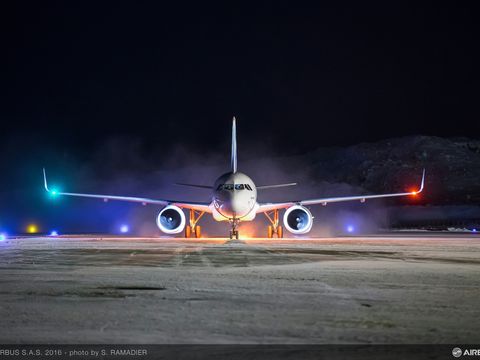Aviation continues to show resilience
Airbus’ latest 20 year Global Market Forecast (GMF) for the 2024-2043 period offers a forward-looking view of air traffic and fleet evolutions.
Over the last four years, air transportation has again proved its resilience through the deepest and longest crisis in its history. Now, traffic and airline operations are broadly back to pre-COVID levels or higher with a few exceptions. Consequently we use 2023 as our baseline year for traffic and fleet for the first time since 2019.
This experience has highlighted once more the vital role played by aviation in connecting people and communities and as a catalyst for trade between them.
Traffic resuming its trajectory
GMF 2024-2043 connects short and long term trends, reflecting dynamic future traffic evolution particularly in regions showing significant pent-up demand, notably Asia Pacific.
In the short term we still see the conditions for strong growth. In the longer term, our forecast connects drivers for air transport demand (macroeconomic demographic…) with existing measures related to the sector’s decarbonisation through Sustainable Aviation Fuels (SAF) and CO2-prices.
More demand for aircraft replacement
People want to travel, and over the next 20 years, Airbus forecasts traffic will more than double (x2.4). In the first three years, Airbus expects traffic to grow at ~8% per year, to catch up lost growth over the pandemic, before reconnecting with an annual growth of approximately 3.6% from 2027 onwards.
New aircraft deliveries (Passenger aircraft over 100 seats and Freighters over 10 tons’ payload) will increasingly replace older, less fuel efficient aircraft. Over the next 20 years we forecast a demand for more than 42,000 new deliveries. These aircraft will further reduce fuel burn per revenue passenger kilometre (RPK) which has already halved since 1990.
Today, around 30% of the world’s in service aircraft fleet are of the latest generation. Replacing the remaining 70% of previous generation aircraft, combined with more efficient ways to operate aircraft, SAF, future technologies such as hydrogen and hybridisation are key to Airbus’ decarbonisation journey, along with the use of carbon capture technologies.
Key figures
Download documents
2024-2043
Presentation GMF 2024-2043
Take away Messages GMF 2024-2043
Infographic GMF 2024-2043
Airbus Commercial Aircraft GMF 2024-2043
Past years
Presentation GMF 2023-2042
Take away Messages GMF 2023-2042
Infographic GMF 2023-2042
Airbus Commercial Aircraft GMF 2023-2042
- 2024-2043
- Past years
Presentation GMF 2024-2043
Take away Messages GMF 2024-2043
Infographic GMF 2024-2043
Airbus Commercial Aircraft GMF 2024-2043
Presentation GMF 2023-2042
Take away Messages GMF 2023-2042
Infographic GMF 2023-2042
Airbus Commercial Aircraft GMF 2023-2042
Our latest news
Read more
-
 Stories Commercial Aircraft
Stories Commercial AircraftAirbus reveals new First Class Experience concept for A350-1000
With increasing demand for First Class cabins on the A350-1000, discover our latest concept for the most premium of cabins. -
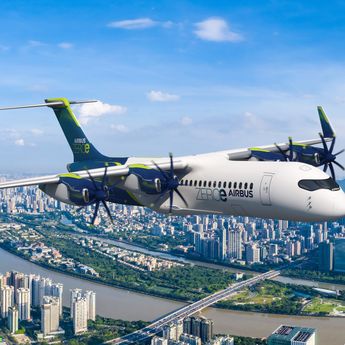 Press releases Innovation
Press releases InnovationAirbus showcases hydrogen aircraft technologies during its 2025 Airbus Summit
-
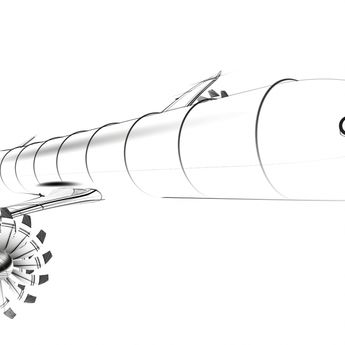 Press releases Innovation
Press releases InnovationAirbus advances key technologies for next-generation single-aisle aircraft
-
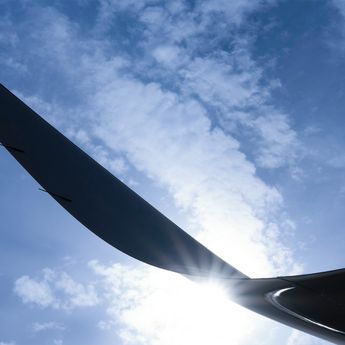 Stories Safety
Stories SafetyAviation safety trends show need for continued vigilance
-
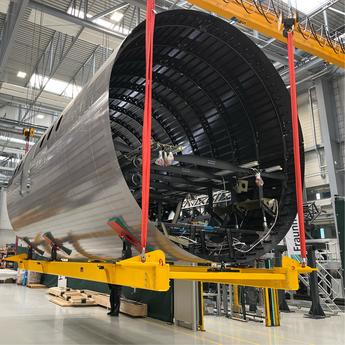 Stories Innovation
Stories InnovationFantastic thermoplastics



